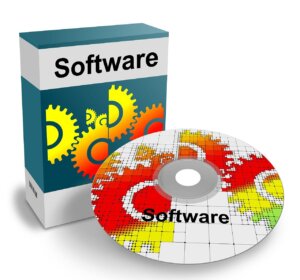After reading this article, you’ll:
- Recognize the significance of software development outsourcing in the current global market, including its benefits for accessing specialized skills, overcoming local skill shortages, and driving innovation through external partnerships.
- Be informed about the latest trends in software development outsourcing, such as the shift towards niche specialization, the adoption of agile and Scrum methodologies, the increasing use of artificial intelligence and blockchain technology, and the implications of data protection laws on outsourcing practices.
- Understand how to select the right outsourcing vendor by considering factors such as the vendor’s talent vetting and training practices, industry expertise, financial stability, commitment to security, and the culture of customer-centricity, ensuring a successful and productive outsourcing partnership.
 Software development outsourcing has become a common practice for companies seeking to reduce costs, gain access to specialized skills, and improve time-to-market for software products. The global outsourcing market has evolved considerably over the past decade, with new providers, models, technologies, and practices emerging constantly. For both buyers and suppliers of outsourced software development services, keeping pace with these trends is crucial to stay competitive and build successful partnerships.
Software development outsourcing has become a common practice for companies seeking to reduce costs, gain access to specialized skills, and improve time-to-market for software products. The global outsourcing market has evolved considerably over the past decade, with new providers, models, technologies, and practices emerging constantly. For both buyers and suppliers of outsourced software development services, keeping pace with these trends is crucial to stay competitive and build successful partnerships.
By understanding these trends, businesses can identify promising opportunities and innovations for their software development initiatives. Meanwhile, outsourcing providers can refine their service offerings, business models, and talent strategies to meet evolving client needs. An informed perspective of the industry’s future direction will equip both sides to navigate the world of outsourced software development more effectively in an increasingly complex global marketplace.
Why Software Development Outsourcing Will Increase In 2024 and Beyond
The global software development outsourcing market is poised to grow at a CAGR of over 11.5% from 2023 to 2028. Underpinning this growth trajectory are certain unstoppable forces:
Relentless Digital Transformation
As digital permeates everything, companies are struggling to rapidly develop products internally while simultaneously running legacy systems. Outsourcing provides extra bandwidth.
Access to Specialized Capabilities
From artificial intelligence (AI) and the Internet of Things (IoT) to cybersecurity and blockchain, exponential technology specialization makes hiring niche talent impossible. Tapping outsourcing pools is the alternate capacity builder.
Overcoming Local Skills Shortages
Markets like the US face chronic developer shortfalls while India and Eastern Europe graduate thousands yearly. Tapping cross-border talent alleviates gaps efficiently.
Enabling Innovation Agility
Rigid in-house environments often stifle experimentation. Outsourced teams frequently offer greater leeway to prototype and prove radical concepts using the latest tools.
Economies of Expertise and Scale
Centralizing niche skills across client projects allows outsourcing vendors to perfect solutions faster through standardization while passing on cost savings.
As software complexity increases while time-to-market windows shrink, businesses will amplify outsourcing to concentrate on their core competencies. Developing everything in-house is set to become more exception than the norm.
Key Outsourcing Software Development Trends in 2024
Shift Towards Niche Specialization
 The software development outsourcing landscape is shifting from large vendors providing generalist services to smaller niche players with deep expertise in emerging technologies. There is growing demand from companies for specialized outsourcing partners that can deliver capabilities in cutting-edge areas like artificial intelligence, machine learning, robotic process automation, blockchain, quantum computing, and the Internet of Things.
The software development outsourcing landscape is shifting from large vendors providing generalist services to smaller niche players with deep expertise in emerging technologies. There is growing demand from companies for specialized outsourcing partners that can deliver capabilities in cutting-edge areas like artificial intelligence, machine learning, robotic process automation, blockchain, quantum computing, and the Internet of Things.
Boutique firms dedicated to these high-value skills are on the rise globally. They build elite teams of developers, data scientists, UX designers, and other roles that are difficult to source and retain in-house. Their focused experience translates to accelerated development, higher quality outputs, and advanced end-products for clients. Examples include PixelCrayons for AI solutions, EchoInnovate for blockchain apps, and PurpleTalk for IoT system integration.
The common thread is specialization in technologies, industries, or process competencies like digital transformation. Businesses increasingly prefer outsourcing partners that understand their specific needs instead of catching up.
Collaborative and Partnership Models
In tandem, software development outsourcing is shifting from transaction-based contractual relationships to strategic win-win partnerships. There is momentum towards building trust, alignment, and transparency between clients and service providers.
Leading outsourcing vendors are investing in collaborative models for co-innovation from the ground up. This means having a seat at the table when products are conceived rather than simply executing instructions. There is more fluid idea exchange and requirements planning in iterative cycles compared to frozen specifications.
Joint governance structures, two-way feedback loops, value-based pricing models, on-site engagements, and cultural integration initiatives further dissolve the barriers between external partners and internal teams. The ultimate goal is true symbiosis.
Increased Adoption of Artificial Intelligence
Artificial intelligence and machine learning have become integral to modern software applications across industries. As companies realize competitive advantage from intelligent features, demand for AI talent within outsourced development teams is soaring. Outsourcing vendors are heavily investing in AI research labs, data science centers of excellence, and developer training programs to harness this opportunity.
Offshore partners with strong AI competencies provide multiple benefits, like faster prototyping of smart features, access to scarce AI talent, and cost savings. Technology behemoths to startups are outsourcing AI system design, NLP interfaces, computer vision functionality, predictive analytics, and conversational app development abroad. Democratizing these advanced capabilities through outsourcing fuels cutting-edge innovation.
Increased Demand for IoT and AI Integration
The Internet of Things landscape has seen explosive growth recently. As devices multiply, seamlessly integrating them using AI for intelligent automation and predictive insights has become critical. This requires sophisticated software development capabilities.
Outsourcing providers have built dedicated IoT labs, hardware prototyping facilities, and AI-IoT convergence competencies to capitalize on this fast-expanding space. With substantial upfront investments required, outsourcing is accelerating IoT/AI convergence across industries through cost and talent advantages.
Digitization in Traditional Industries
While tech was the vanguard of outsourcing, traditional sectors are now pursuing software innovation through global partnerships to keep pace with digital demands. Sectors like banking, retail, logistics, healthcare, and energy are modernizing legacy systems, building mobility platforms, and experimenting with emerging tech through outsourced development.
Domain knowledge coupled with software expertise allows offshore partners to digitally transform conventional verticals effectively. Infusing mobility, UX centricity, data analytics, AI, and cloud capabilities into conventional operations unlocks immense productivity for traditional players while expanding outsourcing scope beyond software companies. This trend promises lucrative synergies.
Data Protection and Privacy Laws
Stringent data protection and privacy regulations are impacting software development outsourcing contracts as vendors must guarantee compliance. Laws like the EU’s GDPR and California’s CCPA carry heavy fines for non-compliance and mandate detailed audit trails.
Outsourcing providers must implement security controls like data encryption, access authorizations, and breach notifications. Clients increasingly demand partners with infrastructure, policies, and talent who meet regional regulatory stipulations before offshoring projects. Complex outsourcing relationships with multiple third parties also raise oversight challenges.
Using cloud solutions with built-in compliance helps. But meticulous data stewardship, network security, transparency, and liability clauses are becoming prerequisites to staying on the right side of evolving privacy legislation across markets.
Intellectual Property Concerns
 Navigating intellectual property (IP) ownership, licensing rules, and local laws adds complexity for companies outsourcing software development abroad. Conflicting IP protection, patent regulations, and acceptable usage policies across countries necessitate careful contracts.
Navigating intellectual property (IP) ownership, licensing rules, and local laws adds complexity for companies outsourcing software development abroad. Conflicting IP protection, patent regulations, and acceptable usage policies across countries necessitate careful contracts.
Multi-point code security, encrypted repositories, strict access control, and rights management are vital best practices. Outsourcing vendors must have provisions to assign IP ownership, non-disclosure clauses, and limitation of liability with clients.
Standardized frameworks like ISO 27001 information security management further signal credibility. Additional data localization commitments assure clients their IP assets will remain protected across geographies. With growing IP value in software, resolving these outsourcing IP risks is mandatory despite the convoluted global landscape.
Integration of QA from Day One
Software development outsourcing is increasingly aligned with modern quality assurance (QA) best practices focused on continuous testing and integration from the start. The traditional waterfall approaches of detached late-stage QA are proving inadequate, especially for complex applications.
Leading outsourcing vendors are embedding testing roles within agile scrum teams to validate code increments continuously. Test automation suites are also run in parallel to provide rapid feedback. This shift left in testing culture catches issues early, reduces tech debt, and raises product quality.
Dedicated centers of excellence in test engineering, security, and compliance audits are also being created for outsourced projects. Quality is becoming automated, prevention-oriented, and a shared objective across the entire delivery lifecycle.
Agile and Scrum Adoption
Agile frameworks like Scrum that enable iterative development are being widely adopted for outsourced software projects to allow flexibility. Rigid specifications are replaced by a flexible backlog as fluid requirements are managed via 2-4 week sprints and continuous stakeholder involvement.
Outsourcing vendors use story points and burn-down metrics for better progress indicators versus task-based plans. Daily standups, retrospectives, and increased transparency help distributed teams self-organize and course-correct faster. Clients also get working prototypes early for validation.
These practices increase collaboration and alignment for successful outsourced agile development. The future points to Agile methods becoming the norm rather than the exception.
Adoption of Blockchain for Security and Transparency
Blockchain is bringing security and transparency advances into outsourcing relationships through features like immutable audit trails, smart contracts, and digital rights management. Distributed records on blockchain networks simplify progress tracking and verification of project milestones between client and vendor teams across locations.
Smart contracts automatically execute code snippets, trigger payments, and provide verification as soon as predefined targets are achieved. This eliminates reliance on manual governance and interventions. Digital tokens also help enforce intellectual property rights by restricting code access only to licensed developers. These blockchain mechanisms minimize friction and maximize trust.
Cloud Computing and Serverless Architectures
The elasticity, global accessibility, and pay-per-usage economics of cloud computing platforms are reshaping software development outsourcing by reducing infrastructure barriers. Cloud-based tools facilitate much easier collaboration without complex VPNs across distributed teams of clients, vendors, and specialists. New serverless architectures also allow running code fragments directly on cloud platforms without provisioning full servers.
By simplifying deployment requirements for outsourced projects, cloud, and serverless solutions provide faster onboarding plus lower start-up and operational costs. They allow vendors to easily scale up resources as per project needs. The cloud model has moved outsourcing towards an on-demand and consumption-based approach from long-term capital investments.
What To Look for In a Company While Outsourcing Software Development Projects
Selecting the right outsourcing vendor is crucial for software project success. The ideal partner balances technical competencies with soft skills for productive long-term relationships. Beyond surface-level service promises, clients should evaluate certain key markers of reliability:
Rigorous Vetting and Continuous Training of Engineering Talent
Enforcing high coding standards requires institutionalized systems for screening developers during hiring and continually upskilling them through testing, certifications, and incentives tied to quality benchmarks. Reputed outsourcing firms invest heavily in recruitment practices and skills development academies to avoid downstream issues. Having defined protocols here is invaluable.
Deep Industry/Domain Expertise Across Leadership
Generalized software expertise has lesser relevance if product vision is not informed by nuanced vertical awareness spanning UX intuitiveness, compliance norms, and future disruption possibilities. Such a strategic perspective allows for accelerated design dialogues and sharper technical decision-making catered to customer needs. Executive teams of outsourcing vendors must demonstrate this contextual fluency based on prior successful cases.
Consistency in Top-Level Strategic Direction and Financial Stability
Frequent leadership churn or via media reports about financial problems at the vendor organization should raise red flags irrespective of sales promises made. Consistent high-level strategic governance and steady business viability indicate vendor sustainability–critical for multi-year outsourcing engagements. Ask probing questions here and seek proof points.
Absolute Process and Communication Transparency
Clearly defined protocols for project governance, progress measurement, issue tracking, and escalation are mandatory. Ad-hoc management leaves room for serious problems to be detected late downstream. Rigor in these areas requires considerable upfront vendor investment but pays long-term dividends.
World-Class Security and Customer Data Governance
What specific compliance certifications exist regarding data security, infrastructure protection, and access controls? Does developer access to source code follow the principle of least privilege? How exactly is valuable client IP safeguarded against threats? Do audits happen, and how frequently? Is data backed up across redundant geolocations? This area warrants deep questioning to avoid disastrous breaches.
Genuine Culture of Customer-Centricity Permeating All Teams
Great account managers may camouflage substantially chaotic delivery that keeps changing hands internally. Underneath sales polish, probe whether customer feedback loops, projections integrity, and individual accountability truly define work ethics. Bad attitudes manifesting as code delivered late or communication gaps can sink projects. Trust gets eroded over time, so make informed character judgments of partner reliability.
The best outsourcing engagements interweave technology with adaptive collaboration for simplicity despite the complexity. Rather than fixating on hourly rates, truly evaluate delivery maturity.
Frequently Asked Questions (FAQs) on Software Development Outsourcing
1. Why is software development outsourcing expected to increase in the coming years?
Software development outsourcing is projected to grow due to several key factors: the ongoing digital transformation across industries, the need for specialized technology capabilities (like AI, IoT, and blockchain) that are hard to find in-house, overcoming local talent shortages by accessing global talent pools, enabling faster innovation, and leveraging economies of expertise and scale. These drivers make outsourcing a strategic move for businesses looking to stay competitive and focus on their core competencies.
2. What are some of the key trends in software development outsourcing for 2024?
Key trends include a shift towards niche specialization with companies seeking outsourcing partners with deep expertise in specific technologies or industries, the evolution of collaborative and partnership-based models rather than transactional relationships, increased adoption of artificial intelligence and integration with IoT for smarter solutions, digitization efforts in traditional industries through outsourcing, and a stronger focus on data protection and intellectual property concerns.
3. How are artificial intelligence (AI) and the Internet of Things (IoT) influencing software development outsourcing?
AI and IoT are significantly influencing software development outsourcing by driving demand for specialized talent and innovative solutions. Outsourcing providers are investing in AI research labs and IoT development capabilities to meet this demand, offering clients access to cutting-edge technologies and expertise that may not be available in-house. This enables the creation of intelligent, interconnected systems and applications that can propel businesses forward.
4. What should companies look for when selecting an outsourcing vendor for software development projects?
When selecting an outsourcing vendor, companies should consider the vendor’s track record in rigorous vetting and continuous training of engineering talent, deep industry or domain expertise, consistency in strategic direction and financial stability, commitment to process and communication transparency, adherence to world-class security and data governance standards, and a genuine culture of customer-centricity. These factors are critical to establishing a productive, long-term outsourcing partnership.
5. How are data protection and privacy laws impacting software development outsourcing?
Data protection and privacy laws like the EU’s GDPR and California’s CCPA are imposing stricter regulations on how personal data is handled, making compliance a critical aspect of software development outsourcing. Vendors must ensure their practices, infrastructure, and policies meet the regulatory requirements of their clients’ jurisdictions. This includes implementing data encryption, access controls, and breach notification processes, as well as ensuring transparency and adherence to privacy laws, to protect sensitive information and avoid legal penalties.





